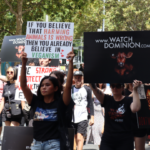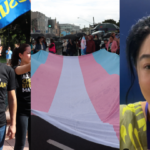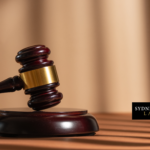Government to Remove More Legal Safeguards

Several of our previous blogs have outlined the wholesale curtailment of human rights in Australia– ostensibly passed to protect us against the threat of terrorism.
While the government claims the laws are necessary for national security reasons, many are concerned about the systematic removal of our basic legal safeguards and protections.
Now, a parliamentary committee has approved the further removal our ‘rights’.
About Control Orders
Since 2012, police have been allowed to exercise control orders if they can satisfy the court that they are necessary to:
- Protect the public from a terrorist act;
- Prevent a person from providing support to facilitate a terrorist act;
- Prevent a person from providing support to facilitate hostile activity in a foreign country.
Control orders impose extensive restrictions on individuals who have not been convicted of any crime, including that they must:
- Remain in Australia and surrender their passport;
- Wear a tracking device;
- Refrain from associating with certain individuals and groups;
- Comply with onerous curfew requirements;
- Report to police and other authorities when required;
- Provide their fingerprints and photographs to authorities.
Currently, control orders can only be issued to those over the age of 16 – but the government has now proposed to lower the minimum age to 14, and to allow greater monitoring of terrorism suspects; introducing the Counter-Terrorism Legislation Amendment Bill (No. 1) 2015.
The government also proposes to introduce legislation which would allow courts to consider certain ‘secret’ information supplied by police when deciding whether or not to issue a control order – without having to disclose this information to that person or their lawyer.
This means lawyers will not be able to investigate the credibility of that information, or make informed submissions against any proposed order.
What Did the Committee Say?
On Monday, the Parliamentary Joint Committee on Intelligence and Security released its advisory report on the Counter-Terrorism Legislation Amendment Bill (No.1) 2015; which sought to review the proposals put forth by the Government.
In a devastating blow to civil libertarians around the nation, the parliamentary report deemed government’s proposals ‘necessary,’ noting that:
‘There have been several well-known instances of young persons under the age of 16 being involved in terrorist plots including, for example, the murder of New South Wales police employee Mr Curtis Cheng by a 15-year-old male.
The targeting of minors for recruitment by terrorist groups — particularly through online propaganda, the ‘grooming’ of minors to take part in terrorist acts, and the use of young persons, by adults, to evade law enforcement attention represents a significant change in the national security landscape.
The committee finds the proposed amendments for the reduction in the age for the imposition of a control order to 14-year-olds to be justified and in principle, a reasonable and necessary measure for protecting the community from harm.’
On top of this, the committee found in favour of the government’s ‘secret evidence’ proposals – saying ‘there is an increasing need to rely on and protect sensitive national security information in control order proceedings’ and recommending that these proposals ‘should proceed without delay.’
The report did recommend some concessions – including that that ‘special lawyers’ be appointed to speak on behalf of suspects in closed court proceedings.
These lawyers would be able to provide advice to the suspect, but would not be able to disclose ‘secret information’.
While the committee recommended that these ‘special lawyers be appointed ‘as soon as practicable, and no later than the end of 2016,’ it expressed the view that the government’s secret evidence laws should be introduced in the meantime. This is contrary to the advice of Roger Gyles QC – the country’s national security monitor, who said that the new laws should not be enforced until the lawyers are appointed.
How Will This Affect Our Rights?
Many have expressed concerns about how the committee’s recommendations will affect individual rights and liberties.
In particular, civil libertarians have highlighted the potential injustice of subjecting vulnerable young people to harsh monitoring conditions without the opportunity to review the ‘evidence’ produced by police.
Australian defendants have already had many basic protections removed by a raft of recent legislation.
For example:
- Courts are now able to draw adverse inferences in certain circumstances where a defendant exercises their ‘right’ to silence;
- Amendments to the new Bail Act make it a lot more difficult to be released on bail – meaning defendants can spend months or even years in prison while they await a trial;
- Cutbacks to legal aid have left many without legal representation;
- New metadata laws allow a large number of government agencies to access an individual’s personal information without a warrant;
- ASIO is now immune from civil and criminal prosecution for acts carried out in the course of special intelligence operations;
- Whistleblowers who speak out about ‘special intelligence operations’ now face a maximum penalty of 5 years imprisonment.
Human Rights Commissioner Gillian Triggs has blasted the government about its disproportionate anti-terrorism laws, speaking openly about the erosion of civil liberties at the recent Human Rights Commission Awards.
Slippery Slope
In recent years, scores of innocent people have been targeted by police and other law enforcement agencies who have falsely accused them of engaging in terrorist activity; including many families during recent ‘terrorism raids’.
So, while some might support any measure which claims to protect against terrorism, we are going down a very slippery slope where police are given the ability to point the finger at anyone they please and, without tested evidence, subject them to onerous conditions and horrendous treatment.
Police are now able to conduct raids and commit heinous acts against innocent individuals without fear of prosecution, they have forced lawyers out of police stations by successfully lobbying for laws which take away the right to silence if a lawyer is present, they can pick and choose data which might suggest that a person is guilty of a crime when they are not.
Whistle-blowers including ‘good cops’ who try to do the right thing are being criminally prosecuted, doctors and other detention centre workers can be prosecuted for revealing human rights abuses, basic protections such as the presumption of innocence, right against self-incrimination and legal professional privilege are being taken away, more and more people are falling into the ‘justice gap’ where they cannot afford a private lawyer but are ineligible for legal aid – the list goes on and on.
It’s time for people to be informed, take a step back and ask ‘is this really what we want here in our great country?’






